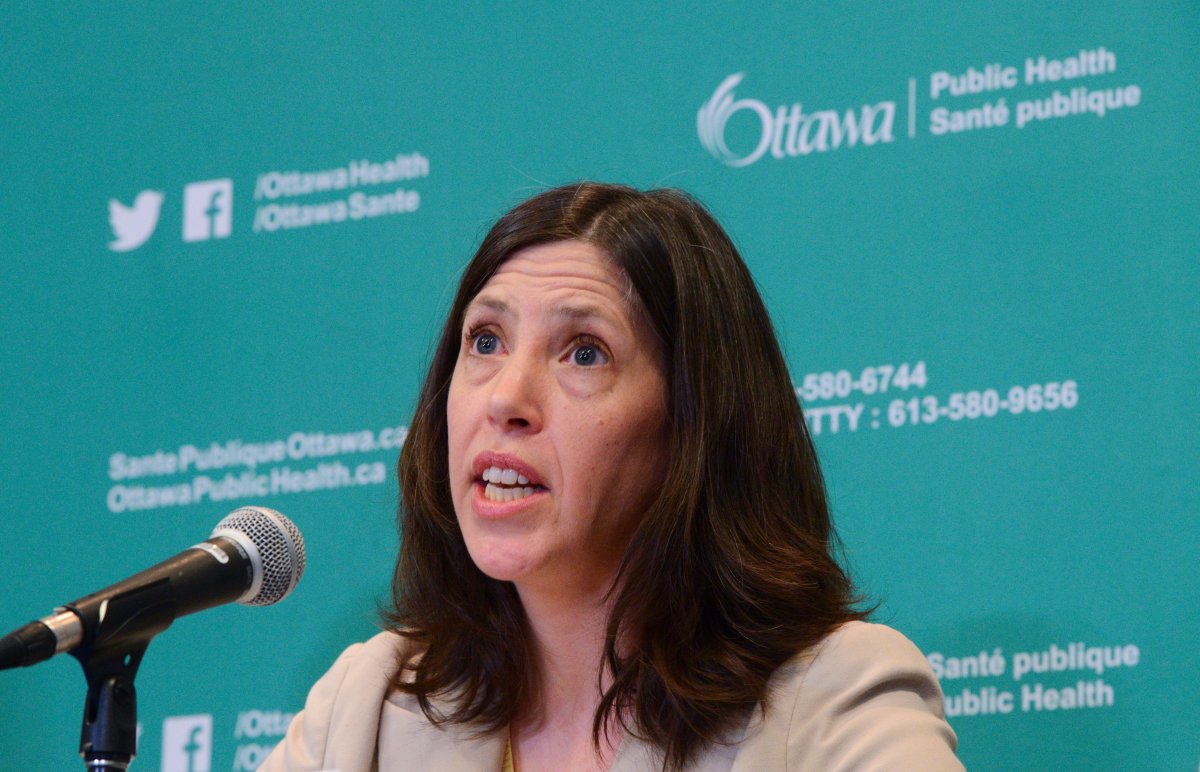Ottawa’s medical officer of health said Thursday that major COVID-19 indicators in the nation’s capital have stabilized as some of the city’s health-care workers roll up their sleeves to receive the coronavirus vaccine early next week.

Ottawa Public Health reported 31 new cases of the novel coronavirus on Thursday, raising the total number of cases in the city to 8,894 since the start of the pandemic.
Active COVID-19 cases in the city dropped to 354 from 379 the day before while one person died in relation to COVID-19 in the past 24 hours, raising Ottawa’s death toll of the pandemic to 383.

There are currently 30 people in hospital with COVID-19 in Ottawa, two of whom are in the intensive care unit.
Dr. Vera Etches, Ottawa’s medical officer of health, said in a statement Thursday that COVID-19 infection rates in the city are stable, but they’re not declining as they were for much of November.
“The COVID-19 indicators on our dashboard and the other information we monitor daily remain stable; our numbers are no longer declining,” she said.
“While not alarming, we have all seen how quickly things can change.”
Ottawa’s coronavirus positivity rate stood at 1.4 per cent for the week of Nov. 27 to Dec. 3, according to OPH’s dashboard.

Get weekly health news
The estimated seven-day average of the city’s COVID-19 reproduction number, which reflects the typical number of additional infections linked to a single case, has meanwhile dropped below one. This generally means the spread of the virus in the community is slowing rather than speeding up.
Etches said it is key as we enter the holidays to limit opportunities to spread the virus by limiting contact with others and celebrating the season only within your immediate household.
Ontario Premier Doug Ford announced Thursday that health-care workers in Ottawa’s long-term care homes would be among the first in the province to receive early doses of Pfizer’s COVID-19 vaccine.
The Ottawa Hospital will receive 3,000 doses of the vaccine next week and will administer it to 1,500 local care providers starting Tuesday, Dec. 15.
Ottawa, despite having relatively lower infection rates than Toronto, Peel and other hard-hit regions of the province, will act as a test case for Ontario’s vaccine distribution strategy.
Ford also said Ottawa was chosen “in recognition of the challenges the region has faced with certain long-term care home outbreaks.”
Coronavirus outbreaks in Ottawa’s long-term care homes have accounted for 2,210 COVID-19 cases in Ottawa, or roughly a quarter of the city’s total cases.
There are currently nine open outbreaks in Ottawa long-term care facilities, the hardest hit being Extendicare’s Starwood care home where 183 people have tested positive for the virus and 25 residents have died with COVID-19.

Commenting on the news Health Canada had approved Pfizer’s vaccine on Wednesday, Etches said there remains a “long road ahead” but that “we have turned the page on a vital chapter in our COVID-19 story.”
“Ottawa, there’s a light at the end of the tunnel. But it’s still a long tunnel and it will take many, many months before large segments of the population are vaccinated,” she said.
Etches said there are many unanswered questions about how the vaccine roll-out will work in Ottawa, but said OPH is planning with the city, local hospitals, long-term care homes and Indigenous health providers to ensure as many residents are vaccinated as quickly as possible.
She also emphasized in her statement that the COVID-19 vaccine is safe and effective.
“Here’s what we do know: vaccines work. And it will have an impact immediately; one single vaccination could prevent an outbreak and save lives,” she said.









Comments